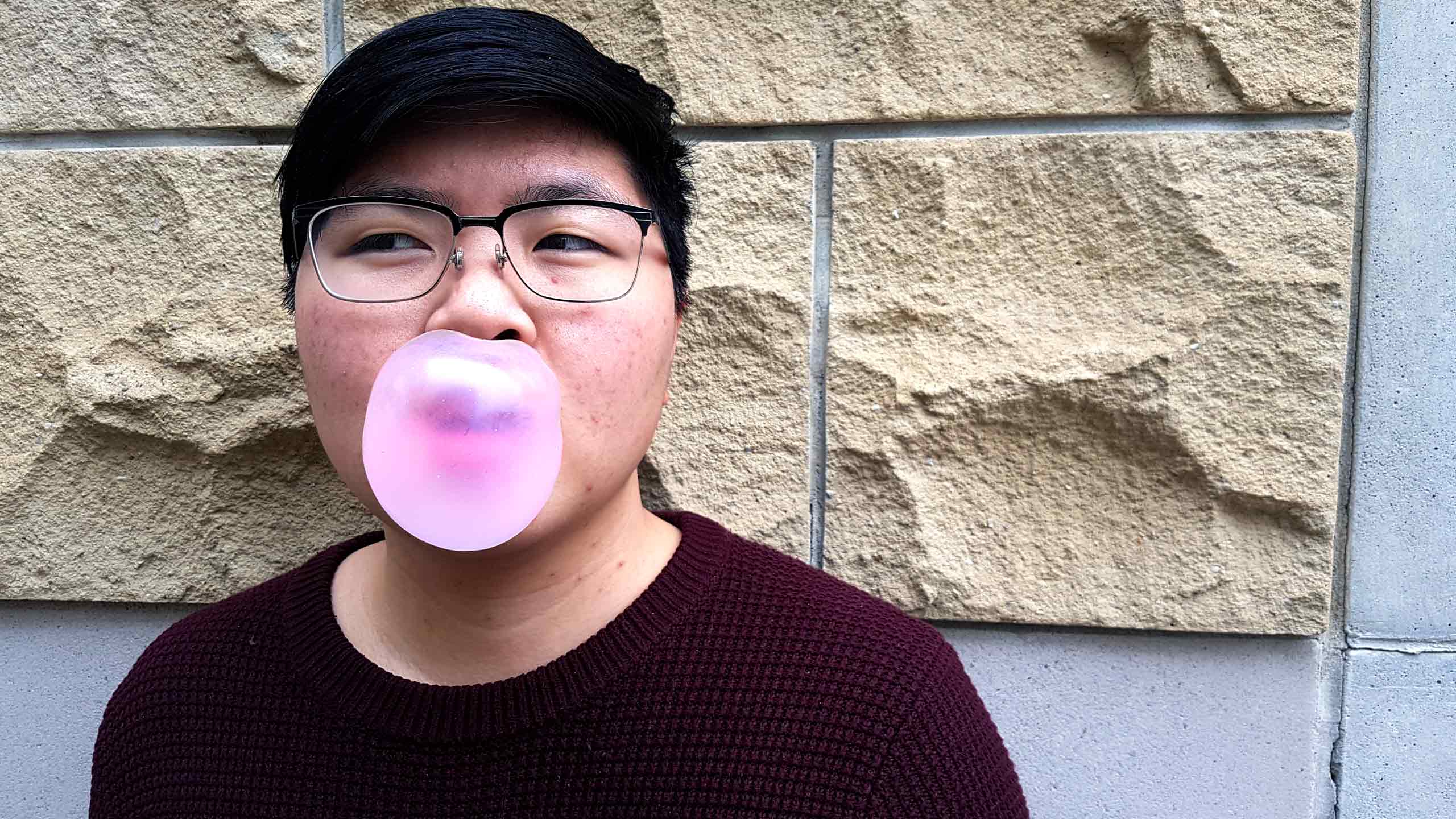By Sylvia Lorico
New research from Ted Rogers School of Retail Management suggests the act of chewing gum may encourage shoppers to spend more time browsing in a store.
In a series of five studies, researchers found that handing out gum to shoppers encouraged them to shop for more items and made them more alert.
“Across the board, the results show that people chewing gum tended to stay longer and browse for more items,” said Seung Hwan (Mark) Lee, associate professor of retail management at Ryerson and the author of the study.
The study was published in the Journal of Retailing and Consumer Services. Lee co-authored it with Ksenia Sergueeva, a graduate student from the Ted Rogers School of Management.
None of the studies made a strong connection between gum chewed and money spent.
“Across the board, the results show that people chewing gum tended to stay longer and browse for more items”
“One could imply that if you’re browsing more and spending longer there’s a potential to spend more but this is not necessarily the case,” said Lee.
Lee and Sergueeva’s research supports other studies which note the act of chewing gum reduces stress, makes people more alert, productive, and better able to concentrate. This is because chewing enhances the delivery of oxygen and glucose to the brain.
The study also found two pieces of gum is the ideal amount of gum for the “chewing effect” to take place. Give too many pieces of gum and consumers will lose focus on shopping.
“If you chew too much, it takes away from your thinking because now you’re focusing too much on the gum itself,” Lee said.
The act of chewing was important. Shoppers did not respond in the same way when candies were used.
Three out of five studies were conducted using Hubba Bubba gum because it was chewier than other brands. Other studies used Excel and Dentyne gum.
People shopping with friends, family or small children were unlikely to spend more time in a store if they chewed gum, the study found. This is because their minds would already be busy with the people they were with and the gum would be an added distraction.
“Let’s say you’re with kids or friends or you’re distracted. You’re looking at your phone or playing games while you’re shopping; the chewing effect would go away,” Lee said.
The first four studies were conducted in a lab with 300 students at a Denver university. The participants were asked to perform several tasks, from imagining they were buying a book from an online retailer to spending $100 on Amazon.com to buy gifts for three of their close family or friends.
Then, they were then asked to write down the items they planned on purchasing.
Studies note the act of chewing gum reduces stress, makes people more alert, productive, and better able to concentrate
The final study was a field test at an anonymous retailer in Toronto. The researchers surveyed 56 customers. Half the group was given gum to chew, while the other half received nothing. Before the customers walked into the store, they were given a survey asking them how long they intended to shop, how much they were going to spend and how many items they were going to buy. The researchers followed up with the same consumers when they left the store.
Lee was motivated to undertake the study as a result of his background in sensory marketing.
“I always find the little things retailers do quite fascinating,” he said, “So I wanted to see what additional things retailers can do to influence consumers.”
Retailers will use a variety of techniques in order to influence consumer purchases and shopping habits. For example, music may have significant impact on audience moods and purchase intentions.












Leave a Reply